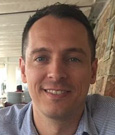
Antony Adamson
The University of Manchester
UK
EMBL Course
This course will provide training in genome editing and cell engineering in mammalian cells and mouse embryos using the highly efficient CRISPR/Cas9 system. Participants will learn design of CRISPR targets using bioinformatics tools, generation of gene knock-outs/knock-ins, and target validation using the most current technologies. The course will be split into two groups (mammalian cells OR mice) based on participants’ expertise.
Please note that all participants are expected to engage in all sessions. Particpants should plan for approximately 1 hour extra per day for self paced learning modules.
This course is aimed at researchers who are familiar with basic molecular and cell biology techniques and who want to learn how to create an engineered mammalian cell line or mouse model using the most recent and advanced CRISPR/Cas9 system. No previous experience in genome editing is required.
After this course you should be able to:
“An extremely valuable tool for understanding the theoretical bases and practical aspects related to the CrispR technologies. Excellent speakers and experts will welcome you and guide you through this course” – Marco Bruschi, Gustave Roussy Cancer Institute, France

The University of Manchester
UK
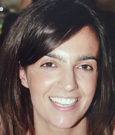
EMBL Rome
Italy
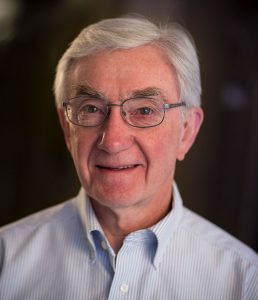
University of Utah School of Medicine
USA
EMBL Heidelberg
Germany
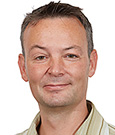
EMBL Rome
Italy
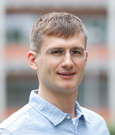
Universitätsklinikum Frankfurt
Germany
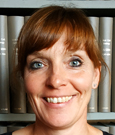
Max Planck Institute for Medical Research
Germany
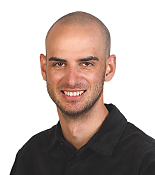
EMBL Heidelberg
Germany
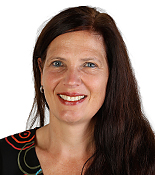
EMBL Heidelberg
Germany
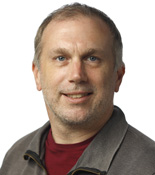
EMBL Heidelberg
Germany

EMBL Heidelberg
Germany
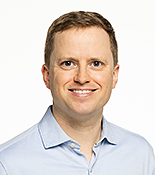
EMBL Heidelberg
GErmany

EMBL Rome
Italy
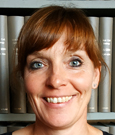
Max Planck Institute for Medical Research
Germany

ThermoFisher Scientific
Germany

Course and Conference Team Lead
EMBL Heidelberg
Germany
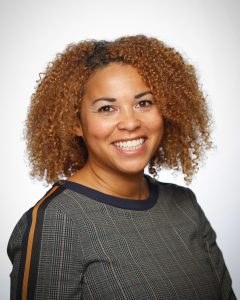
Training Laboratory
Manager
EMBL Heidelberg
Germany

Training Laboratory
Technician
EMBL Heidelberg
Germany
Got something to say? Tweet it! #EMBLCRISPRcas
| Time (Europe/Berlin) | Session | Location |
|---|---|---|
| 16:00 – 16:30 | Registration | ISG Hotel |
| 16:30 – 17:30 | Arrival & Welcome Introduction to course design | ISG Seminar room |
| 17:30 – 18:00 | Icebreaker | ISG Seminar room |
| 18:00 – 19:00 | Live Keynote Lecture: Introduction to CRISPR/Cas 9 Dana Carroll – University of Utah School of Medicine, USA This talk will be remote | ISG Seminar room |
| 19:00 | Dinner & Networking | ISG Hotel |
| Time (Europe/Berlin) | Session | Location |
|---|---|---|
| 08:30 – 08:45 | Bus from ISG Hotel to EMBL | ISG Hotel |
| 08:45 – 09:00 | Registration | Courtyard Room |
| 09:00- 12:15 | Day 2: Guide RNA Design | |
| 09:00- 09:15 | Lab Safety Yvonne Yeboah – EMBL Heidelberg, Germany | Courtyard Room |
| 09:15 – 10:15 | Lecture: Purification of Cas9 protein Kim Remans- EMBL Heidelberg, Germany | Courtyard Room |
| 10:15 – 11:15 | Practical 1: gRNA/Donor design Kristof Kersse -Thermo Fisher Scientific, Germany Kieran Van Kessel – Thermo Fisher Scientific, UK | Training Lab A & B |
| 11:15 – 11:45 | Coffee | |
| 11:45 – 12:30 | Practical in groups | |
| 11:45 – 12:30 | Mammalian Cell Group Practical 1.1: TrueTag Donor Template Synthesis – PCR Silke Deckert – Thermo Fisher Scientific, Germany Kristof Kersse – Thermo Fisher Scientific, Germany Antony Miles – Thermo Fisher Scientific, UK Kieran Van Kessel – Thermo Fisher Scientific, UK | Training Lab A |
| 11:45 – 12:30 | Mouse Embryo Group gRNA/donor design for embryos Neil Humphreys – EMBL Rome, Italy Michela Ascolani – EMBL Rome, Italy Isabel Rollan – EMBL Heidelberg, Germany | Training Lab B |
| 12:30- 13:30 | Lunch | |
| 13:30 – 14:30 | Lecture: Robust genome editing is simple molecular biology: application across model organisms Alexandre Paix – EMBL Heidelberg, Germany | Courtyard Room |
| 14:30 – 16:00 | Practical 1.2 Mammalian Cell Group: TrueTag Donor Template Synthesis – Gel analysis and Clean-up Silke Deckert – Thermo Fisher Scientific, Germany Kristof Kersse – Thermo Fisher Scientific, Germany Antony Miles – Thermo Fisher Scientific, UK Kieran Van Kessel – Thermo Fisher Scientific, UK | Training Lab A & B |
| 14:30 – 16:00 | Practical 1.2 Mouse Embryo Group:Basic embryo handling – Glass transfer pipet prep, harvest embryos and short seminar on embryo transfer and demonstration. Neil Humphreys – EMBL Rome, Italy Michela Ascolani – EMBL Rome, Italy Isabel Rollan – EMBL Heidelberg, Germany | Training Lab A & B |
| 16:00- 16:30 | Coffee | |
| 16:30 – 18:00 | Practical 2 +3 Mammalian Cell Group Group A: gRNA efficiency: Lipid transfection of 293FT cells with gRNA and Cas9 protein, Lipid transfection of 293FT-eBFP cells with gRNA, Cas9 protein and ssODN Silke Deckert – Thermo Fisher Scientific, UK Antony Miles – Thermo Fisher Scientific, UK Kieran Van Kessel – Thermo Fisher Scientific, UK Group B:Guide RNA design task Birgit Koch – Max Planck Institute for Medical Research, Germany Kristof Kersse – Thermo Fisher Scientific, Germany | Training Lab A & B |
| 16:30 – 18:00 | Mouse Embryo Group: Annealing gRNAs and microinjection mixes & Intro to TLR2 system Neil Humphreys – EMBL Rome, Italy Michela Ascolani – EMBL Rome, Italy Isabel Rollan – EMBL Heidelberg | Training Lab A & B |
| 18:00- 19:00 | Dinner | |
| 19:00- 20:30 | Practical 2 +3 Mammalian Cell Group Group B: gRNA efficiency: Lipid transfection of 293FT cells with gRNA and Cas9 protein, Lipid transfection of 293FT-eBFP cells with gRNA, Cas9 protein and ssODN Silke Deckert – Thermo Fisher Scientific, UK Antony Miles – Thermo Fisher Scientific, UK Kieran Van Kessel – Thermo Fisher Scientific, UK Group A:Guide RNA design task Birgit Koch – Max Planck Institute for Medical Research, Germany Kristof Kersse – Thermo Fisher Scientific, Germany | Training Lab A & B |
| 19:00- 20:30 | Practical 2+3 Mouse Embryo Group Embryos handling and transfer KSOM media O/N culture Neil Humphreys – EMBL Rome, Italy Michela Ascolani – EMBL Rome, Italy Isabel Rollan – EMBL Heidelberg, Germany | Training Lab A & B |
| 20:30 | Bus from EMBL to ISG Hotel |
| Time (Europe/Berlin) | Session | Location |
|---|---|---|
| 08:30 – 08:45 | Bus from ISG Hotel to EMBL | |
| 08:45 – 09:15 | Registration | |
| 09:15 – 10:15 | Lecture: CRISPR-Cas genome editing to generate transgenic mice Neil Humphreys – EMBL Rome, Italy | Courtyard Room |
| 10:15 – 11:15 | Practical Lecture Mammalian Cell Group: Generation and validation of endogenously tagged cell line Birgit Koch – Max Planck Institute for Medical Research, Germany | Courtyard Room |
| 10:15 – 11:15 | Practical 4. Mouse Embryo Group: Assess and clean-up 2 cell microinjected embryos | Training Lab A & B |
| 11:15- 11:45 | Coffee | |
| 11:45 – 12:45 | Lecture: Pooled screening in growth-variable human cerebral organoid tissue via DNA barcoding Dominik Lindenhofer – EMBL Heidelberg, Germany | Courtyard Room |
| 12:45 – 13:45 | Lunch | |
| 13:45 – 15:45 | Practical 1.3 + 4 Mammalian Cell Group Group A: Tag Knock-in: Electroporation of 293FT with gRNA, Cas9 protein and TrueTag donor template Silke Deckert – Thermo Fisher Scientific, Germany Kristof Kersse – Thermo Fisher Scientific, Germany Antony Miles – Thermo Fisher Scientific, UK Kieran Van Kessel – Thermo Fisher Scientific, UK Group B: Project discussion Birgit Koch – Max Planck Institute for Medical Research, Germany Kristof Kersse – Thermo Fisher Scientific, Germany | Cell Culture/Flex Lab Courtyard Room |
| 13:45 – 15:45 | Practical 4 Mouse Embryo Group Thaw pre-prepared blastocysts, assess viability and extract DNA Neil Humphreys – EMBL Rome, Italy Michela Ascolani – EMBL Rome, Italy Isabel Rollan – EMBL Heidelberg | Training Lab A & B |
| 15:45- 16: 15 | Coffee | |
| 16:15- 18:15 | Practical 1.3 + 4 Mammalian Cell Group Group B: Tag Knock-in: Electroporation of 293FT with gRNA, Cas9 protein and TrueTag donor template Silke Deckert – Thermo Fisher Scientific, Germany Kristof Kersse – Thermo Fisher Scientific, Germany Antony Miles – Thermo Fisher Scientific, UK Kieran Van Kessel – Thermo Fisher Scientific, UK Group A: Project discussion Birgit Koch – Max Planck Institute for Medical Research, Germany Kristof Kersse – Thermo Fisher Scientific, Germany | Cell Culture/Flex Lab |
| 16:15- 18:15 | Practical 5 Mouse Embryo Group Design cut test PCR and knock-in specific PCR – forward and reverse. Run O/N Neil Humphreys – EMBL Rome, Italy Michela Ascolani – EMBL Rome, Italy Isabel Rollan – EMBL Heidelberg, Germany | Training Lab A & B |
| 18:15 – 19:15 | Dinner | Canteen |
| 19:15 | Bus from EMBL to ISG hotel | EMBL Bus stop |
| Time (Europe/Berlin) | Session | Location |
|---|---|---|
| 08:30 – 08:45 | Bus from ISG Hotel to EMBL | |
| 08:45 – 09:15 | Registration | Courtyard Room |
| 09:15 – 10:15 | Lecture: Genome-scale pooled genetic screens with CRISPR/Cas9 and complex readouts from single cells Daniel Schraivogel – EMBL Heidelberg, Germany **this talk is remote** | Courtyard Room |
| 10:15- 12:15 | Practical in Groups Mammalian Cell Group Practicals 5-1 & 5-2: GCD Cell Harvest and lysis, set up GCD PCR Silke Deckert -Thermo Fisher Scientific, Germany Antony Miles – Thermo Fisher Scientific, UK | Training Lab A & B |
| 10:15- 12:15 | Mouse Embryo Group: Practicals 5.1 & 5.22 Assess and clean-up 4 to 8 cell embryos. Run Gels for PCRs Set up T7 assay and digestion assay PCRs. Neil Humphreys – EMBL Rome, Italy Michela Ascolani – EMBL Rome, Italy Isabel Rollan – EMBL Heidelberg, Germany | Training Lab A & B |
| 12:30- 13:30 | Lunch | |
| 13:30- 14:30 | Lecture: The 3Cs technology for CRISPR gRNA library generation Manuel Kaulich – Goethe University, Germany | Courtyard Room |
| 14:30 – 16:30 | Practical in Groups Practical 5.3: Mammalian Cell Group CR analysis, set up GCD re-annealing reaction Practical 5.4 & 5.5 Set up digestion for GCD, gel purification & sample submission for sanger sequencing Gel analysis of GCD Silke Deckert – Thermo Fisher Scientific, Germany Kristof Kersse – Thermo Fisher Scientific, Germany Antony Miles- Thermo Fisher Scientific, UK Kieran Van Kessel – Thermo Fisher Scientific, UK | Flex Lab A & B |
| 14:30 – 16:30 | Mouse Embryo Group: Cut out gels for sequencing and run gels for T7 assay and digestion assay. T7 assay and digestion assay – analyze. submission for sanger sequencing Neil Humphreys – EMBL Rome, Italy Michela Ascolani – EMBL Rome, Italy | Training Lab A & B |
| 16:30- 17:00 | Coffee | |
| 17:00- 18:00 | Lecture: Imaged-based high-throughput screening RNAi vs CRISPR Beate Neumann, EMBL Heidelberg, Germany | Courtyard Room |
| 18:00- 19:00 | Dinner | Roof Top Lounge |
| 19:00- 20:30 | Discussion round and drinks: Ethical issues of CRISPR technology and genome engineering | Roof Top Lounge |
| 20:30 | Bus from EMBL to ISG hotel | EMBL bus stop |
| Time (Europe/Berlin) | Session | Location |
|---|---|---|
| 08:30 – 08:45 | Bus from ISG Hotel to EMBL | |
| 08:45 – 09:15 | Registration | |
| 09:15 – 10:45 | Practical in Groups Mammalian Cell Group Group A: Examine BFP cells via microscopy and FACS Kristof Kersse – Thermo Fisher Scientific, Germany Antony Miles – Thermo Fisher Scientific, UK Kieran Van Kessel – Thermo Fisher Scientific, UK Group B: Knock-In cell validation – DNA Preparation Birgit Koch – Max Planck Institute for Medical Research, Germany | Training Lab B |
| 09:15 – 10:45 | Mouse Embryo Group Thaw TLR2 embryos and examine KO and KI morular/ blastocysts for florescence Knock-In validation. Neil Humphreys – EMBL Rome, Italy Michela Ascolani – EMBL Rome, Italy | Training Lab B |
| 10:45 – 11:15 | Coffee and group photo | |
| 11:15 – 12:45 | Practical in Groups Mammalian Cell Group Group B: Examine BFP cells via microscopy and FACS Antony Miles- Thermo Fisher Scientific, UK Group A: Knock-In cell validation – DNA Preparation Birgit Koch – Max Planck Institute for Medical Research, Germany | Training Lab B |
| 11:15 – 12:45 | Mouse Embryo Group Image embryos Neil Humphreys – EMBL Rome, Italy Michela Ascolani – EMBL Rome, Italy | Training Lab B |
| 12:45 – 13:45 | Lunch | |
| 13:45 – 15:00 | Practical in groups Mammalian cell group Knock-In cell validation – Set up Junction PCR Birgit Koch – Max Planck Institute for Medical Research, Germany Neil Humphreys – EMBL Rome, Italy Michela Ascolani – EMBL Rome, Italy | Training Lab B |
| 13:45 – 15:00 | Mouse embryo group Tour of LAR Facility | |
| 15:00 – 15:15 | Break | |
| 15:15 – 17:40 | Technology Lounge: Genome modification technologies Presentation by different companies. **Click here for the Technology Lounge schedule** | A01: Stilla A23: Merck B11: IDT Flex Lab: ThermoFisher Roof Top Lounge: NEB |
| 17:40 | Bus from EMBL to downtown (via ISG Hotel) | ATC entrance |
| 19:00 | Downtown course dinner | Oskars Downtown |
| Time (Europe/Berlin) | Session | Location |
|---|---|---|
| 08:30 – 08:45 | Bus from ISG Hotel to EMBL | ISG Hotel |
| 08:45 – 09:15 | Registration | Flex Lab |
| 09:15 – 10:15 | Lecture: Gene editing in different experimental models Antony Adamson – The University of Manchester, UK | Flex Lab A & B |
| 10:15-11:15 | Practical in Groups Mammalian Cell Group Gel electrophoresis of junction PCR Birgit Koch – Max Planck Institute for Medical Research, Germany | Training Lab B |
| 10:15-11:15 | Mouse Embryo Group Project discussion Neil Humphreys – EMBL Rome, Italy Michela Ascolani – EMBL Rome, Italy | Flex Lab A & B |
| 11:15- 11:45 | Break | |
| 11:45- 12:45 | Practical in Groups Mammalian Cell Group Analysis of gel electrophoresis Birgit Koch – Max Planck Institute for Medical Research, Germany | Training Lab B |
| 11:45- 12:45 | Mouse Embryo Group Project discussion Neil Humphreys – EMBL Rome, Italy Michela Ascolani – EMBL Rome, Italy | Flex Lab A & B |
| 12:45- 13:45 | Lunch | |
| 13:45- 15:00 | The Solution Room- Last chance to ask questions | Flex Lab A & B |
| 15:00- 15:30 | Final discussions, feedback session | Flex Lab A & B |
The course is limited to 16 participants. For selection purposes, please note that your application will not be considered without a letter of motivation.
Registration fees include admission, course materials, COVID-19 safety measures, meals and coffee breaks. Participants are expected to book and pay their own accommodation and travel expenses.
| Academia | €790 |
| PhD Student | €790 |
| Industry | €1200 |
NO visa support letters will be issued until payment of the registration fee is confirmed.
The registration fee should be paid only after acceptance to the course. The results will be announced approximately 2-3 weeks after the application deadline.
After you have logged in and successfully registered, you will receive an email asking you to submit your motivation letter. Click on the link provided and enter your motivation letter in the text box provided. Alternatively you can submit your motivation letter by clicking on the link on the confirmation page directly after registering.
Instructions
Please note:
For detailed instructions, please watch our video on how to submit a course motivation letter.
For further information about registration and motivation letter submission please refer to the FAQ page.
Limited financial assistance is provided by the EMBL Advanced Training Centre Corporate Partnership Programme and EMBO in the form of both registration fee waivers and travel grants. Availability is limited to participants attending on-site events in Heidelberg and will be indicated during the abstract or motivation letter submission process.
Your place in the meeting is only confirmed by paying the registration fee, which is mandatory even when receiving a fee waiver.
The fee waiver will cover the registration sum that you have paid to attend the course or conference.
The travel grant will cover the cost of travel (airfare, train, bus, taxi, accommodation, visa, and/or registration fees*) and is provided up to specified caps which are normally as follows:
– up to €400 for participants travelling to an EMBL Course, EMBL Conference or EMBO|EMBL Symposium from within Europe.
– up to €1000 for participants travelling to an EMBL Course, EMBL Conference or EMBO|EMBL Symposium from outside Europe.
– up to €500 for any participant travelling to an EMBO Practical Course or EMBO Workshop.
– up to €1000 for any participant working in Chile, India, Singapore or Taiwan travelling to an EMBO Practical Course or EMBO Workshop.
*Registration fees are only covered for EMBO Practical Courses or EMBO Workshops
The organisers may reduce the grant cap to accommodate more participants. Recipients will be notified of their travel cap amount when they are informed of the outcome of their application. Original receipts must be provided with your signature for all costs incurred within two months of completion of travel. Scanned copies cannot be accepted.
For EMBO Practical Course or EMBO Workshop participants with children, there is the possibility to apply for a childcare grant to offset child care costs incurred by participants or speakers when participating at a course or conference. Eligible costs include fees for a babysitter or child-care facility, travel costs for a caregiver, or travel costs for taking the child to the meeting etc. Please note that priority will be given to early-stage researchers. A maximum amount of 500 EUR can be awarded per participant applying for an EMBO Childcare Grant. In order to apply for this grant for EMBO Workshops, you must be registered by the abstract submission deadline.
Applies to selected courses only. Availability will be indicated during the abstract or motivation letter submission process.
This grant covers costs related to your attendance at the course (registration, travel and accommodation costs). The grant is restricted to PhD students and postdocs who conduct basic biomedical research.
Whether you are eligible to apply for a travel grant, depends on when you received your university entrance qualification (e.g. Abitur, A-Levels, High School Diploma, Final State Examination):
– for PhD and MD students, as well as graduates, the university entrance qualification must not have been obtained more than 11 years ago at the time of the envisaged course
– for postdocs, the university entrance qualification must not have been obtained more than 13 years ago at the time of the envisaged course
You may apply for financial assistance when submitting your motivation letter for courses, and abstract for conferences. In your application, you will be asked to answer questions regarding why your lab cannot fund your attendance and how your attendance will make a difference to your career. Application for financial support will not affect the outcome of your registration application.
For the Boehringer Ingelheim Fonds Travel Grant, there is a pre-application question during the motivation letter submission process, and if selected you will be requested to complete a standard form and documentation consisting of your travel expense estimation.
The scientific organisers will select the recipients of all financial assistance during the motivation letter or abstract selection process. Results will be announced approximately 6-8 weeks before the event start date, however for some events this may be delayed. Selection results do not impact your admission to the meeting. Selection is based on your current work or study location, the reasons for needing financial support and the impact this event will have on your career.
Costs will be reimbursed after the meeting only once a reimbursement form and original receipts (from travel costs) have been received.
See our list of external funding opportunities and information on attending a conference as an event reporter.
For further information about financial assistance please refer to the FAQ page.
Single rooms have been reserved for 5 nights (09 – 13 October 2022) at the ISG Hotel. After the selection process, selected participants should contact the hotel directly to make a booking (booking code GEE22-01). We recommend that all course participants stay at the ISG Hotel which is the dedicated hotel for the course.
Shuttle buses will go from the ISG Hotel to EMBL and back, mornings and evenings. A bus schedule and location of the bus stops will be made available prior to the meeting.
Address: EMBL Heidelberg, Meyerhofstraße 1, 69117 Heidelberg, Germany
For further information on getting to EMBL Heidelberg visit our Travel Information page.
For enquiries about accommodation and local transportation please refer to the FAQ page.
The EMBL eCampus learning platform will be used to collaborate, communicate and network with all of the course participants. All participants will receive information on how to join shortly before the course. We recommend using Chrome, Safari or Mozilla Firefox browsers for eCampus.
Please find additional information including FAQs, terms and conditions, COVID-19 safety policy and travelling to EMBL on our Information for Participants page.
COVID-19 information for on-site events at EMBL Heidelberg can be found in our COVID-19 FAQs.
Sponsorship opportunities
We offer a variety of event sponsoring possibilities, with the flexibility to select a set sponsorship package or combine individual sponsorship options to suit your event budget. Discounts are available for companies sponsoring multiple events at EMBL Heidelberg. View other conferences, or contact sponsorship@embl.de for further information.
If you are interested in becoming a media partner of this event, please visit our media partnerships webpage.

Date: 9 - 14 Oct 2022
Location: EMBL Heidelberg
Venue: EMBL Advanced Training Centre
Deadline(s):
Application: Closed
Organisers:
Contact: Chris Stocks